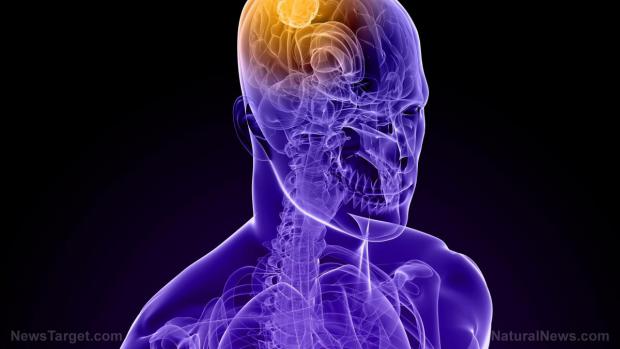
Breaking News
 So long, Paris: US officially leaves landmark climate pact – Trump has formally removed the U.S...
So long, Paris: US officially leaves landmark climate pact – Trump has formally removed the U.S...
 VIDEO: Ilhan Omar Caught In Massive Money Laundering Operation With Fake Winery!
VIDEO: Ilhan Omar Caught In Massive Money Laundering Operation With Fake Winery!
 HISTORIC BOMBSHELL: Trump Federalizes Large Parts Of California After A Year Long Federal...
HISTORIC BOMBSHELL: Trump Federalizes Large Parts Of California After A Year Long Federal...
 Washington Post staffers beg owner Jeff Bezos to spare their jobs amid plans to slash HUNDREDS...
Washington Post staffers beg owner Jeff Bezos to spare their jobs amid plans to slash HUNDREDS...
Top Tech News
 Researchers who discovered the master switch that prevents the human immune system...
Researchers who discovered the master switch that prevents the human immune system...
 The day of the tactical laser weapon arrives
The day of the tactical laser weapon arrives
 'ELITE': The Palantir App ICE Uses to Find Neighborhoods to Raid
'ELITE': The Palantir App ICE Uses to Find Neighborhoods to Raid
 Solar Just Took a Huge Leap Forward!- CallSun 215 Anti Shade Panel
Solar Just Took a Huge Leap Forward!- CallSun 215 Anti Shade Panel
 XAI Grok 4.20 and OpenAI GPT 5.2 Are Solving Significant Previously Unsolved Math Proofs
XAI Grok 4.20 and OpenAI GPT 5.2 Are Solving Significant Previously Unsolved Math Proofs
 Watch: World's fastest drone hits 408 mph to reclaim speed record
Watch: World's fastest drone hits 408 mph to reclaim speed record
 Ukrainian robot soldier holds off Russian forces by itself in six-week battle
Ukrainian robot soldier holds off Russian forces by itself in six-week battle
 NASA announces strongest evidence yet for ancient life on Mars
NASA announces strongest evidence yet for ancient life on Mars
 Caltech has successfully demonstrated wireless energy transfer...
Caltech has successfully demonstrated wireless energy transfer...
 The TZLA Plasma Files: The Secret Health Sovereignty Tech That Uncle Trump And The CIA Tried To Bury
The TZLA Plasma Files: The Secret Health Sovereignty Tech That Uncle Trump And The CIA Tried To Bury
Scientists unlock 30-year mystery: Rare micronutrient holds key to brain health and cancer defense

• Queuosine, a rare micronutrient from food and gut bacteria, is critical for brain function, memory, stress response and cancer defense—but until now, scientists didn't know how our bodies absorb it.
• Researchers at University of Florida and Trinity College Dublin discovered the SLC35F2 gene, the long-sought "transporter" that allows queuosine to enter cells, solving a 30-year scientific mystery.
• Queuosine fine-tunes gene expression by modifying transfer RNA, influencing everything from learning to tumor suppression—yet most people have never heard of it.
• The breakthrough could lead to new therapies for neurological disorders, cancer and metabolic diseases by leveraging queuosine's role in cellular health.
• The study highlights the power of the microbiome and diet in regulating genetic activity, opening doors for nutrition-based medical interventions.
For over 30 years, scientists knew that queuosine—a vitamin-like micronutrient found in trace amounts in foods like dairy, meat and fermented products—played a crucial role in human health. It modifies transfer RNA (tRNA), the molecular machines that help translate genetic code into proteins, influencing everything from memory formation to cancer suppression. Yet one glaring question remained unanswered: How does queuosine get into our cells?
This week, an international team of researchers—led by the University of Florida (UF) and Trinity College Dublin—published a groundbreaking study in the Proceedings of the National Academy of Sciences (PNAS) that finally solves the puzzle. They identified SLC35F2, a gene that acts as the gatekeeper, transporting queuosine into cells where it can work its magic.



